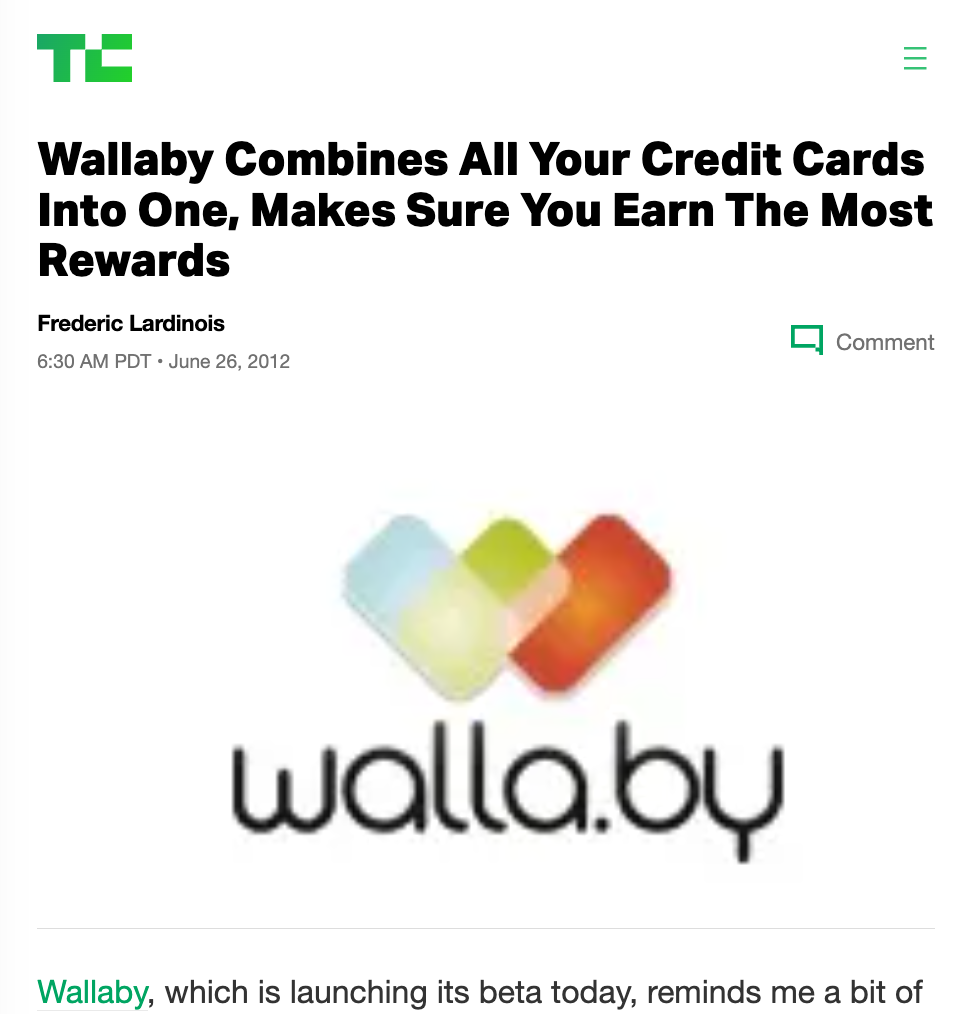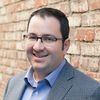How I launched my company with no co-founder, no money, and no hope of survival

Recently, I have had a lot of conversations with founders about the value of public relations. Folks, generally speaking, don't want to spend money on it because it isn't clearly measurable marketing. In contrast, when you spend money on Google or Facebook ads, you know how many clicks and conversions you received and, therefore, your user acquisition cost. PR is at the top of the funnel, much less certain, much more of a long game, and has a higher initial starting price.
I am a big fan of PR, however. I can trace Wallaby's success to it. This post is the story of how I launched Wallaby with no co-founder, money, or hope of survival.
I first came up with the concept for Wallaby in early 2011, and by the end of the year, I had decided I had no choice but to start the company. I recruited two co-founders, RF and PZ, who were both engineers and seemed excited. (This was after a false attempt with another CTO who didn't have the time to pursue it after some initial development.)
We joined MuckerLab as one of their first eight companies, netting us something like $20,000 and a place to work for three months. I started fundraising near the end of the accelerator class in March 2012, but it didn't go well.
By June, it became clear that it was not time for either RF or PZ to be full-time co-founders. I bear no hard feelings; they had other things in their lives. I had started searching for someone new, but I knew I needed to find a way to light a fire under the company and create momentum.
Through Mucker, I was introduced to a PR firm willing to help with a launch announcement. Waitlists for new products were a relatively recent phenomenon, so I built a simple landing page website to host this waitlist. (See it via the Wayback machine here.) I also spent a couple of thousand dollars on one of those animated explainer videos:
Wow. The Wallaby Video doesn't age well.
I thought we had an amazing concept. We just needed to find the right investors and show them that people loved this idea. So, I paid the PR firm $2500 (more than 10% of my capital on hand) to help me launch the card in June 2012.
It was awesome. We were on TechCrunch and just about every other tech publication. We had hoped for 1,000 people to sign up for the waitlist; within days, we had more than 10,000. In the days before tools like ProductHunt, we won by being on all the venture blogs, getting Twitter activity going, and so much more.
In addition to generating some real marketing buzz for this crazy idea I had, a partner at Founders Fund, Bruce Gibney, saw the article and emailed me to ask if I was raising money. I played that conversation correctly, and their early-stage fund, FF Angel, led our round, writing a $500,000 check.
In a weird circumstance of timing, the same day we received the commitment from Bruce, we raised another $250,000 from WI Harper.
Between the PR launch and the fundraising, I had come to terms with my new co-founder and CTO, Todd, who stayed with me throughout the rest of the business's life.
After getting Founders Fund onboard, it was easy to move through to the remainder of our growing goal, which was eventually raising about $1.5MM. (In 2012, this was an average-size seed deal. Times have changed.) If Founders Fund was in, others wanted in. We were featured as the "deal of the day" or something on AngelList. It was awesome.
In the end, we never successfully built the Wallaby Card. Folks at the network blocked us from doing what we wanted, although now there are new attempts to make products like Wallaby work here, such as Curve USA and Visa's new Flexible Credential.
We pivoted the business to a personal finance tool, sold it to Bankrate, and made a solid return for ourselves and our investors.
When I evaluate how we got there and how I prevented Wallaby from dying before it started in summer 2012 it was the bold choice to invest in a public launch of a waitlist for a company that had no money and a product that didn't exist yet. I am always amazed and grateful that bold gamble worked out.

